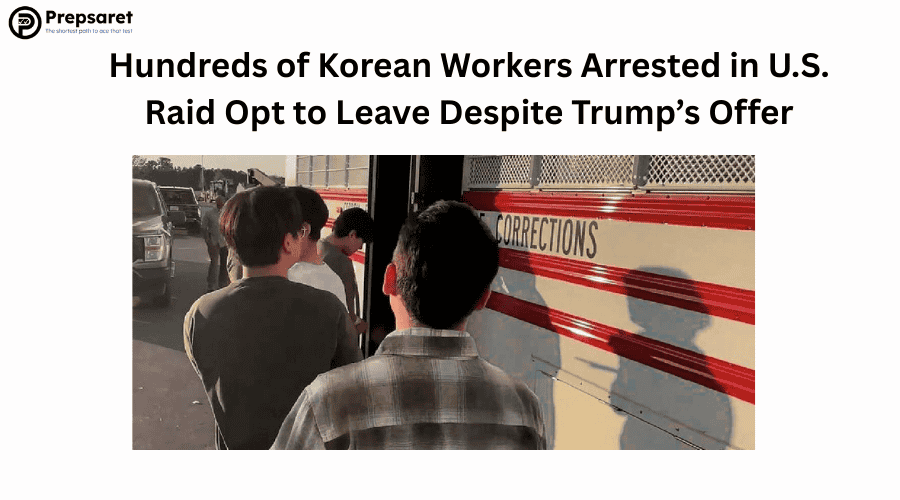Key Points
- Around 300 South Korean workers were arrested in a U.S. immigration raid at a Hyundai–LG Energy battery plant in Georgia.
- Former President Donald Trump suggested allowing them to remain temporarily to train American workers, but only one worker accepted.
- South Korea facilitated their return home, citing recovery needs and the option to return later if they wished.
- The incident has sparked concerns among Korean companies about U.S. visa restrictions and business climate.
- U.S. agencies have not publicly commented, and the episode highlights tensions in balancing immigration enforcement with global business needs.
The Raid and Trump’s Offer
SEOUL, Sept. 11 — Roughly 300 South Korean nationals, along with 175 other foreign workers, were arrested last week during a U.S. immigration enforcement operation at a $4.3 billion Hyundai Motor and LG Energy Solution battery plant construction site in Georgia.
The raid disrupted one of the largest South Korean-led investments in the United States and has since stirred diplomatic responses in both Washington and Seoul.
Former U.S. President Donald Trump reportedly proposed that the detained South Korean workers be given the option to remain in the country temporarily to help train American employees.
A South Korean foreign ministry official said Trump directed U.S. authorities to “encourage” the workers to stay for that purpose. However, only one individual accepted the offer.
South Korea’s Position
South Korean President Lee Jae Myung confirmed at a press briefing that departure procedures for the workers were briefly paused to assess the proposal. Ultimately, South Korean Foreign Minister Cho Hyun, after consultations in Washington with U.S. Secretary of State Marco Rubio, advised that the workers return home to recuperate, noting they could later reapply to travel back if they wished.
Cho further assured that the workers would not be handcuffed during their transfer to the airport, diverging from standard U.S. deportation practices.
Want to understand U.S. employment laws and workforce compliance? Boost your HR career with SHRM and HRCI certification prep.
Business and Diplomatic Implications
The episode has raised concerns among South Korean companies about operating in the U.S. Strict visa caps on skilled foreign workers, they argue, hinder their ability to quickly dispatch staff to manage complex projects or train American teams.
The arrests, combined with the uncertainty surrounding foreign worker policies, have prompted questions about the U.S. investment environment for global firms.
Meanwhile, the White House, the State Department, and the Department of Homeland Security have not commented publicly on the matter.
Also in the News: Shooter dead, 2 other students in critical condition after shooting at Colorado high school: Sheriff

